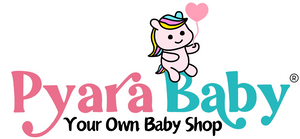Why Kids Lie – And How You Can Handle It With Love and Understanding

Every parent experiences that moment—your child tells a story that doesn’t quite add up. Whether it’s denying who broke the toy or fibbing about brushing their teeth, lying can be confusing and even upsetting for parents. But here’s something important to remember: lying is a part of child development, not a reflection of bad behavior or poor parenting.

Why Do Kids Lie?
Children don’t lie to hurt or deceive. Their reasons are usually innocent or emotionally driven, such as:
-
Avoiding punishment
(“If I say I didn’t do it, maybe I won’t get scolded.”) -
Pleasing adults
(“I brushed my teeth!” – even when they didn’t.) -
Exploring imagination
Younger children may blur the lines between fantasy and reality. -
Seeking attention or control
Sometimes, kids lie just to feel in charge of their own story.
Understanding why they lie is the first step toward a calmer, more effective response.

How to Respond When Your Child Lies
Stay Calm
Reacting with anger or threats can make them lie more to avoid your reaction. Keep your voice neutral and body language open.
Create a Safe Space for Truth
Reinforce that telling the truth is always better than hiding it—even if there’s a mistake involved. Say things like:
“It’s okay to make mistakes, but it’s important we talk about them honestly.”

Avoid Harsh Punishment
Fear-based discipline can encourage more lying. Instead, use consequences that teach accountability.
Catch Them Being Honest
Praise them when they tell the truth, especially when it’s hard to do. This builds trust and self-worth.
Model Honesty Yourself
Children observe everything. If they see you being truthful—even when it’s uncomfortable—they’re more likely to follow your lead.

Teach Through Stories and Play
Books, flashcards, and role-playing are excellent ways to teach values without pressure. You can turn a story into a conversation:
-
-
“Why do you think the character lied? What could they have done instead?”
-

Building Trust Is the Long-Term Goal
Lying doesn’t mean your child is “bad”—it means they’re still learning how to handle emotions, responsibility, and consequences. Your job as a parent is to guide, not punish. When you make honesty feel safe, children are more likely to open up—even when it's hard.
At PyaraBaby, we’re committed to creating tools and products that support positive parenting. Do checkout our flashcard packs on emotions emphasising honesty, empathy, and kindness—ideal for toddlers and preschoolers.



